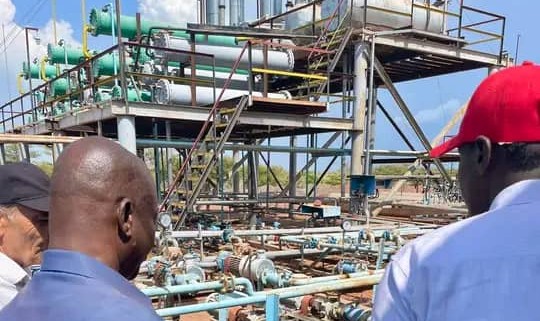
A high-level engagement workshop in Melut has brought renewed focus to growing frustration over the delayed disbursement and lack of transparency in managing the 3% community share from oil revenues.
Organized by the Civil Society Coalition on Natural Resources (CSCNR), the meeting gathered 41 participants, including local authorities, community leaders, and representatives from women and youth groups.
Community members voiced their concerns, emphasizing that schools, health centers, and essential services are suffering due to delays in receiving funds. “This delay is hurting our schools and health centers,” said a community elder who sought anonymity.
“Teachers and doctors are leaving because they are not being paid, and the children are the ones suffering,” he said as many participants noted the lack of clear financial records detailing how the 3% share is calculated and how much has actually been disbursed.
Frequent changes in county leadership have further complicated the situation, disrupting the work of Community Development Committees (CDCs).
According to participants, each new commissioner restructures these committees to fit shifting political agendas, making long-term development difficult. “We are tired of starting over every time a new official arrives,” said a youth representative.
Despite the challenges, the 3% oil revenue allocation has contributed to some progress. Five schools have been constructed, and four others rehabilitated, allowing for improved education access.
More than 100 teachers have been recruited and relocated to Melut, receiving salaries, housing, transport, and food, as well as scholarships awarded to aspiring nurses and midwives studying in Juba.
Healthcare has seen improvements, with renovations completed at Melut Civil Hospital and the New Friendship Hospital in Paloch.
The employment of three specialist doctors, the purchase of an ambulance, and the delivery of medical supplies have strengthened health services. “The hospital has improved, but the shortage of medicine and specialized equipment still leaves patients without proper care,” noted another participant.
However, as the workshop concluded, participants issued strong recommendations for reform, calling for stable county leadership and for officials to be given enough time to implement and complete development plans.
Transparency and public reporting on the 3% oil revenue share were emphasized, along with the completion of water and electricity projects across all payams. “We need to know exactly how our money is spent; this is our right,” insisted a youth leader.
Additional priorities include the construction of a public laboratory to monitor environmental and health risks, particularly toxic waste, and the passage of an Environmental Bill to safeguard communities.
Calls were made to expand education infrastructure, including new schools, vocational training centers, and a fully equipped computer training facility. Scholarship opportunities should be increased, ensuring that community-led selection processes remain fair and transparent.
The urgency of forming a new county legislative assembly to enhance oversight and accountability was widely emphasized. “We need a functioning assembly that listens to us and defends our interests,” said a community leader.
As Melut’s residents continue to press for transparency, fair revenue distribution, and better service delivery, the demand for accountability remains a critical issue shaping the region’s future.

